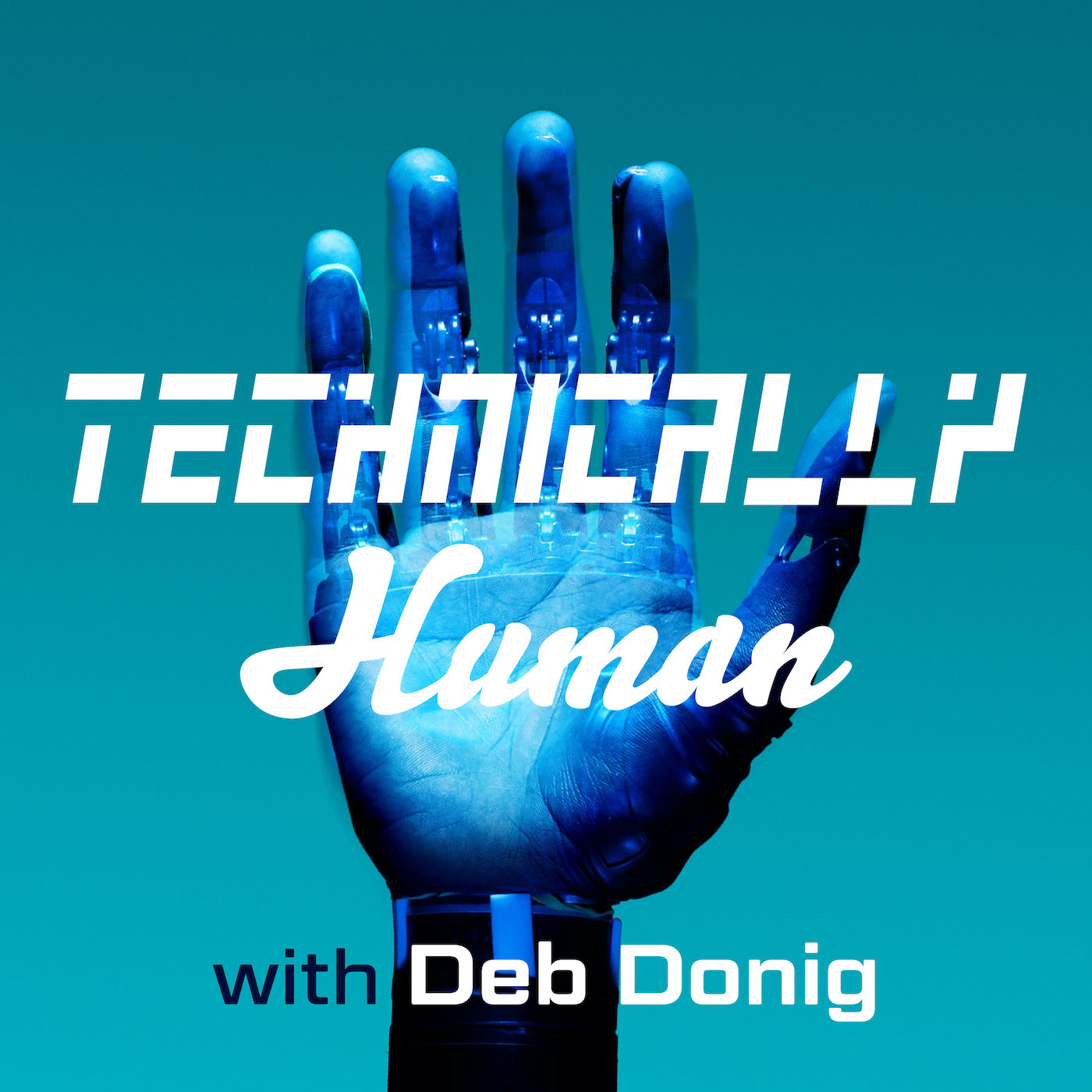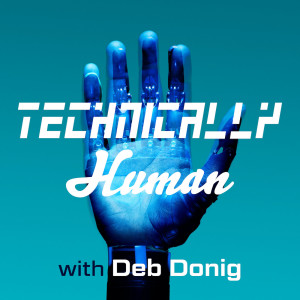
Technically Human is a podcast about ethics and technology where I ask what it means to be human in the age of tech. Each week, I interview industry leaders, thinkers, writers, and technologists and I ask them about how they understand the relationship between humans and the technologies we create. We discuss how we can build a better vision for technology, one that represents the best of our human values.
Technically Human is a podcast about ethics and technology where I ask what it means to be human in the age of tech. Each week, I interview industry leaders, thinkers, writers, and technologists and I ask them about how they understand the relationship between humans and the technologies we create. We discuss how we can build a better vision for technology, one that represents the best of our human values.
Episodes

Friday Sep 23, 2022
Command Code: Ethics, technology, and the debate about free will
Friday Sep 23, 2022
Friday Sep 23, 2022
Welcome back to a new season of “Technically Human!” To kick off the year, I wanted to start out with a topic that has been coming up for me increasingly as I talk to people in Silicon Valley: free will.
OK, so I know it might seem a bit odd for a show about ethics and technology to feature what might seem like a purely philosophical concept. But spending time talking to folks in the tech scene, I discovered that the topic of free will comes up quite a lot. I wanted to understand why. The conversations made me wonder what it is about our technological culture—and maybe even our technologies themselves--that has reinvigorated this ancient debate, which extends back into the earliest philosophical traditions, and which is crucial to any concept of ethics.
In an age of algorithmic predictions, with tech companies and digital technologies that can anticipate and pinpoint our every move, can we still have free will as we know it? What happens to free will when our genetic technologies can plan what we’ll look like, how physically able we will be, and even who we’re likely to become? How free really are our actions when where we decide to eat is influenced by review sites that promote paid sponsors; where how we spend our money is dictated by data giants who tell us what we should like; and where even who we love is determined by algorithms on dating apps? How do we understand freedom of thought, and action, in an age where our biotechnologies not only record, but also predict and proscribe, how thoughts move around in our mind, and how they become actions?
To understand these questions, I turned to David Lawrence, the author of “Are We Biochemical Robots,” a book he wrote in opposition to Sam Harris’s popular argument against free will, a viewpoint endorsed by many in Silicon Valley. Lawrence, who holds a degree in philosophy from UCLA and a degree in law from USC, is a philosopher social critic, and a philosophical proponent of free will, opposing the determinist views held by many new media personalities. Here’s our conversation.

No comments yet. Be the first to say something!